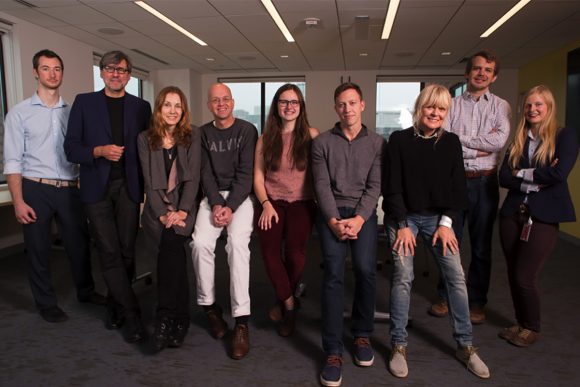Silver Scholars Program Offers Flexibility, Freedom to Experiment
The Silver Scholars Program at Yale SOM is an outlier among MBA programs at U.S. business schools. Set up in a sandwich style, the program allows students to enter right out of undergraduate studies for their first academic year, then complete an extended internship of at least one year, and then return to Yale for their second academic year. The internship is designed to allow Silver Scholars to gain relevant experience, develop their leadership skills, and put their business education into practice.

One of the greatest strengths of the Silver Scholars Program is that, with the safety net of returning to Yale SOM, the program gives Scholars the flexibility to try out different roles, functions, and organizations until they find something that they are especially passionate about. Over the past year, I have been able to leverage this program benefit to do just that.
At the conclusion of my first academic year, I began a summer internship with Mattel as a Global Consumer Insights MBA intern. This fact in itself is testament to the strength of the Silver Scholars Program, as landing the internship only one year out of undergrad would have been otherwise impossible. While all of the work was interesting, I quickly became captivated by one component of the internship: the research. Designing and running studies, analyzing data, reading relevant literature, and drawing appropriate conclusions all excited me, and moving forward, I knew that I wanted research to be a significant part of my career.
So, at the conclusion of the internship at Mattel, and with nine months of internship left, I began reaching out to research labs that fit well with my behavioral and marketing interests. I was appointed to a research affiliate position at the MIT Sloan School of Management Neuroeconomics Lab, working alongside Drazen Prelec and Danica Mijovic-Prelec. In my work there, I was given great autonomy in designing studies and was free to investigate topics I felt were interesting. The methodologies of the projects that I was involved in were extremely varied—covering the entire spectrum from behavioral surveys to fMRI scans. As a result of projects begun there, Drazen, Danica, and I have two papers in progress: one focusing on inducing truth-telling in self-assessment, and another centered around the relationship between moral superiority and dishonest behavior.
Outside of the work, the experiences coupled with the position were incredible. I attended top research conferences like the annual meeting of the Society for Judgment and Decision Making and the Interdisciplinary Symposium on Decision Neuroscience. I was also able to attend PhD courses and research seminars, and was afforded the opportunity to present my work on inducing truth-telling in self-assessment at the MIT Sloan Neuroeconomics weekly meeting.
When I return to Yale in the fall, I am going to continue to nurture my interest in research by choosing electives with major research components, attending research seminars and conferences, and conducting independent studies with faculty. These experiences, which would have likely been missed had it not been for the extended internship, will be instrumental in my research-centric career moving forward.
Ultimately, the structure of the Silver Scholars Program is designed to be as flexible as possible in order to allow Scholars to discover their professional passions and gain relevant experience along the way. To those considering the Silver Scholars Program at Yale SOM, I cannot overstate the benefit of the extended internship and its structure; the freedom to sample, evaluate, and experiment jobwise is both unparalleled and invaluable in informing your career decision-making process.



